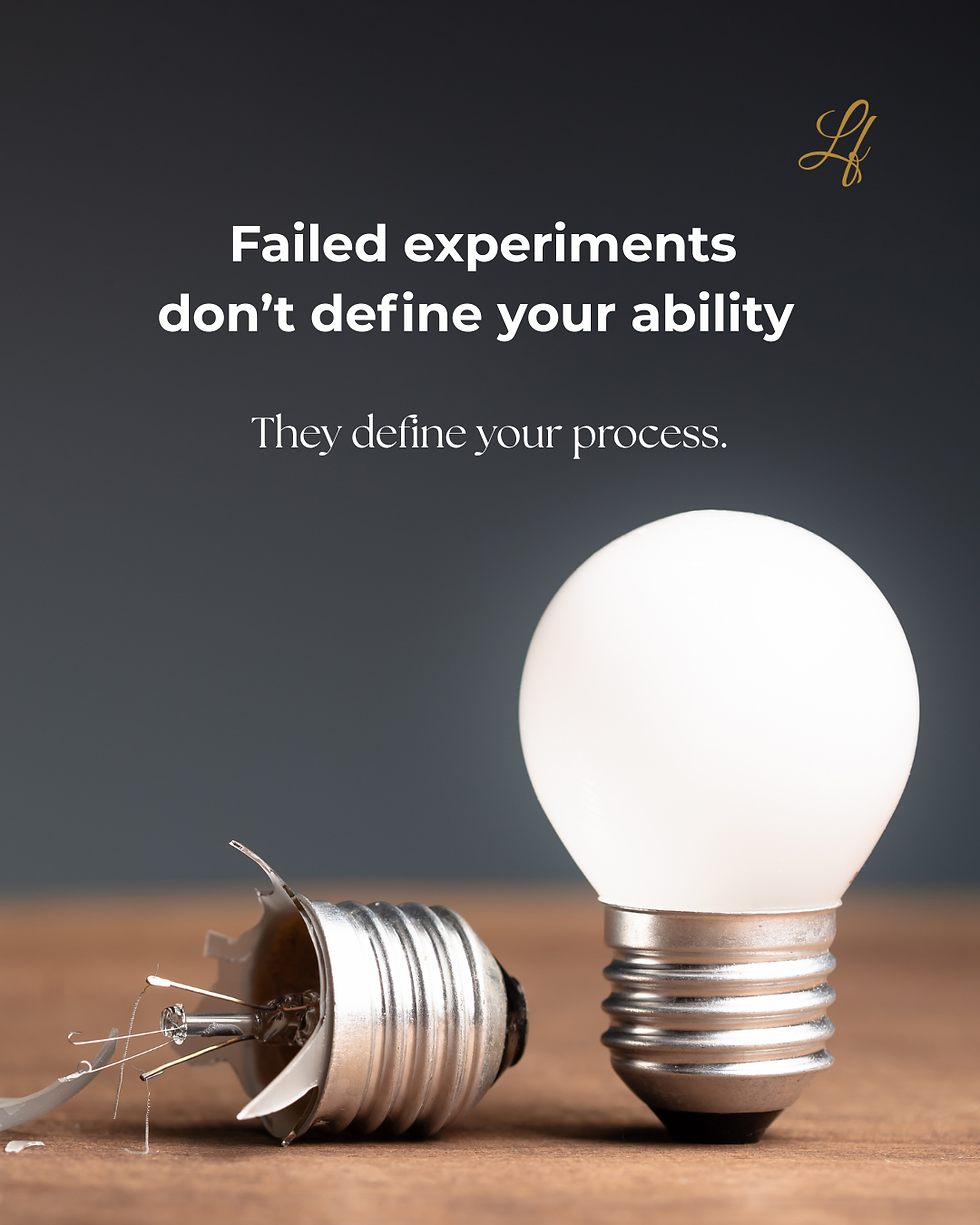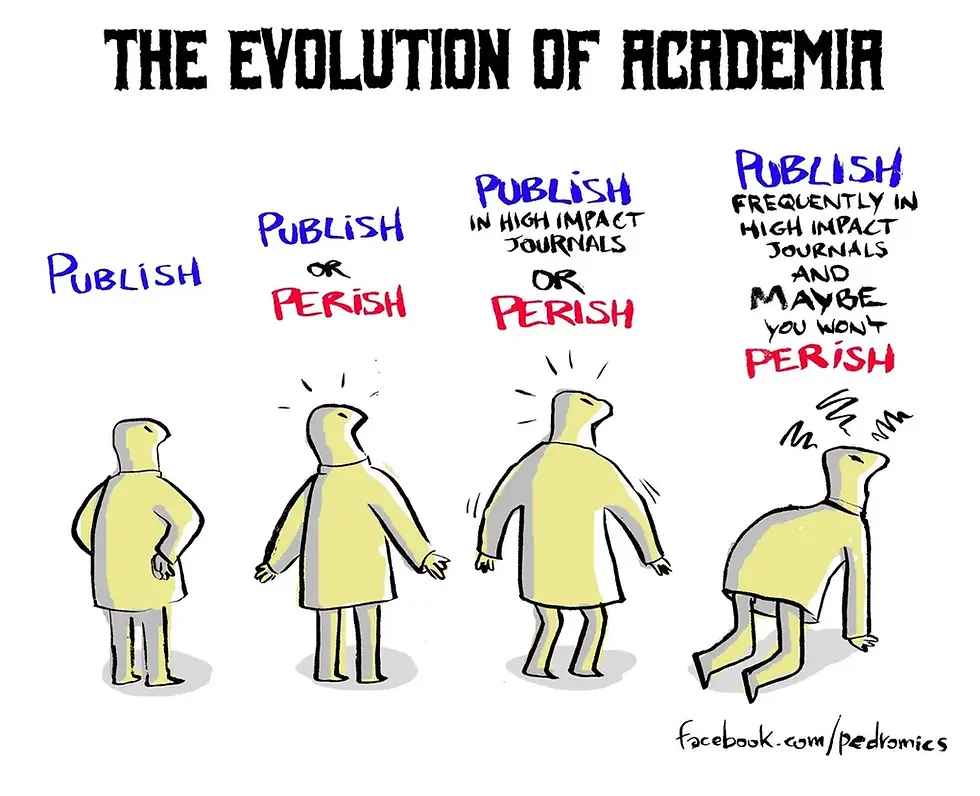Failed Experiments ≠ Failed Researcher
- Laras Fadillah
- Oct 11, 2025
- 2 min read
Yesterday, I had to present my progress report, and honestly, most of my experiments this month failed.I was so stressed I couldn't even sleep the night before.
Have you ever felt that way? That sinking feeling that reporting failed data somehow means you are failing?
I've been there too.
Sometimes I forget that research starts with an idea, something untested, uncertain, and fragile. And that means failure isn’t a reflection of incapability; it’s literally the scientific process in motion.

Failure Is a Feature, Not a Flaw
In academia, we are taught to pursue precision and proof, yet the path to both is paved with error. Failed experiments don’t mean you’re doing bad science; they mean you’re doing real science.
A Nature survey (2016) found that over 70% of scientists have experienced major experimental failures that never reached publication, but many later described those “failures” as turning points that shaped new directions in their work.
Similarly, a PNAS study (2019) analyzed thousands of research careers and discovered that even the most successful scientists experience long streaks of failure before a breakthrough. The key difference between those who persist and those who give up isn't luck; it's learning from what didn't work.
Reframing “Failed” Experiments
When an experiment doesn’t deliver the expected result, we tend to call it a failure. But think about it, you’ve learned something that didn’t exist before. You’ve ruled out a variable, discovered an instability, and identified a limitation.
That’s data. And data moves science forward.
As Thomas Edison once said:
“I have not failed. I've just found 10,000 ways that won't work.”
Each setback is a step in the refinement of your hypothesis. Each “failed” experiment sharpens your scientific intuition — the quiet ability to know where to look next.
What the Science Says About Persistence
Psychological research supports this mindset. Research in Frontiers of Psychology found that grit and resilience, the ability to sustain effort after failure, strongly predict long-term success in research and innovation.
In other words, persistence isn't just personality; it's a scientific advantage.
When you treat failure as data, you train your brain to stay curious instead of defeated. You transform frustration into iteration, and iteration into discovery.
Progress Is Not Linear
In the scientific world, we often see polished papers and perfect figures — but behind every published graph are months of uncertainty, trial, and adaptation.
We need to normalize that truth. Because failure is not a detour from science — it’s the road itself.
So here’s my reminder (to myself, and maybe to you too):
Reporting failed results doesn't make you a failed researcher. It makes you an honest one.



Comments